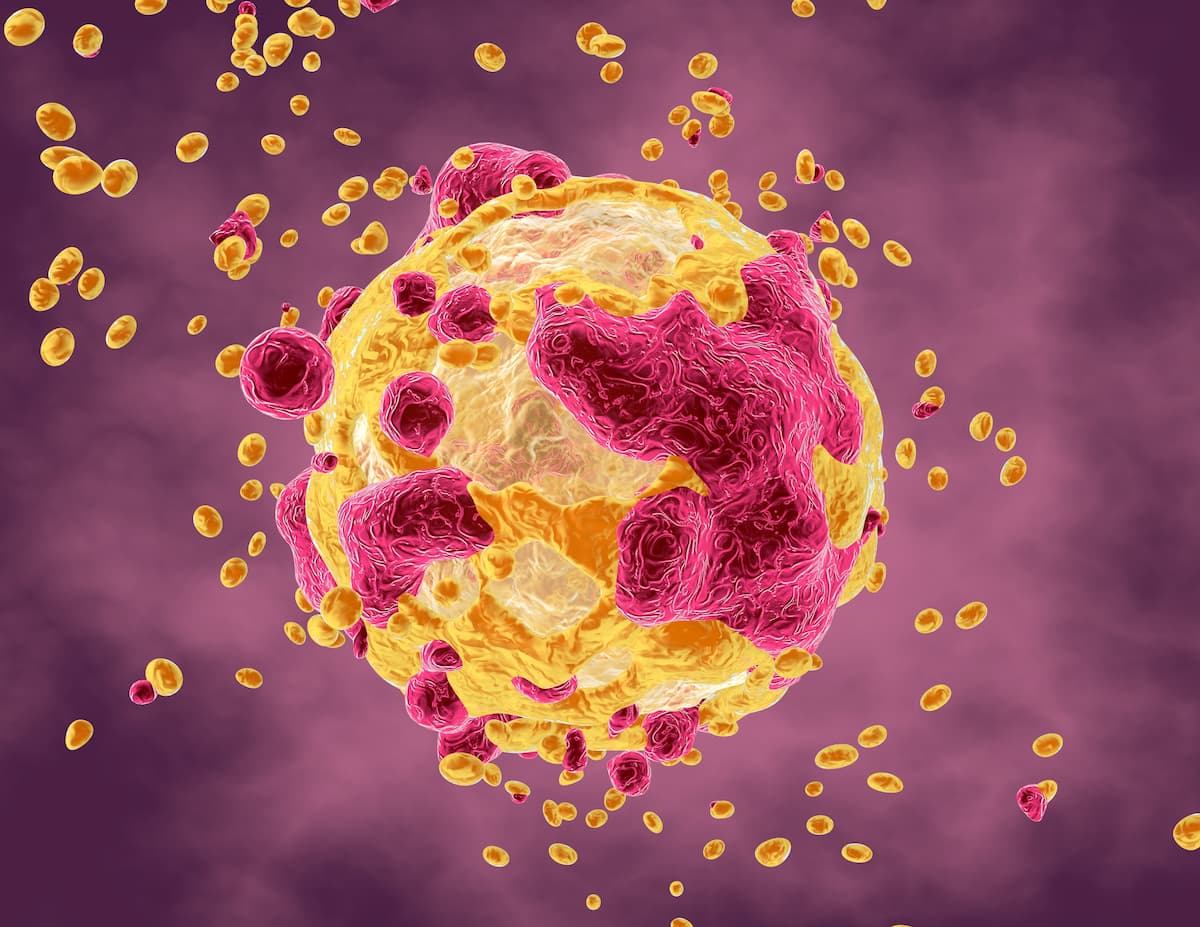FDA Lifts Hold on Trial Evaluating BLU-222 in Advanced Solid Tumors
The FDA’s decision to lift a partial clinical hold on the phase 1/2 VELA trial follows reports of visual adverse effects in patients with advanced solid tumors in February 2023.
The FDA has lifted its partial clinical hold on patient enrollment in the phase 1/2 VELA trial (NCT05252416) investigating BLU-222 as a treatment for advanced solid tumors, according to a press release from Blueprint Medicines.1
“With a focus on patient safety, we have worked diligently with the FDA over the last several weeks to resolve the partial clinical hold by updating [AE] monitoring and management procedures,” according to the manufacturers of BLU-222.

The agency originally placed a partial clinical hold on the VELA trial in February 2023 following reports of visual adverse effects (AEs) including transient, reversible instances of light sensitivity and blurred vision.2 The partial hold has now lifted as of March 28, 2023; investigators are coordinating with trial sites to resume patient enrollment as those already enrolled in the study continue to receive the agent.
“With a focus on patient safety, we have worked diligently with the FDA over the last several weeks to resolve the partial clinical hold by updating [AE] monitoring and management procedures,” Becker Hewes, MD, chief medical officer at Blueprint Medicines, said in the press release. “We are confident in the potential of BLU-222 to improve outcomes in patients with cancers vulnerable to CDK2 inhibition and we look forward to presenting initial dose escalation data from the VELA trial in the second quarter of 2023.”
Previous data from a trial assessing BLU-222 in CCNE1-amplified ovarian cancer models that read out at the 2022 American Association for Cancer Research Annual Meeting (AACR) identified anti-cancer activity.3 Findings from this research provided rationale for developing BLU-222 as monotherapy and in combination with standard-of-care therapy in CCNE1-amplified tumors.
Investigators of the first-in-human, open-label phase 1/2 VELA trial are assessing the safety, tolerability, pharmacokinetics, pharmacodynamics, and anti-cancer activity of the CDK2-inhibitor BLU-222 in patients with advanced solid tumors. Disease types in the trial include those with estrogen receptor (ER)–positive breast cancer, HER2-negative breast cancer, ovarian cancer, endometrial cancer, gastric cancer, esophageal adenocarcinoma, and carcinosarcoma.
In phase 1 of the VELA trial, patients received BLU-222 orally at various doses as a monotherapy or in combination with other agents including intravenous carboplatin, intramuscular fulvestrant (Faslodex), and oral ribociclib (Kisqali).
Primary end points include determining the maximum tolerated dose, recommended phase 2 dose, and AEs in phase 1 of the study, as well as overall response rate and AEs in phase 2. Secondary end points include time to maximum plasma drug concentration, apparent oral clearance, duration of response, change in cancer antigen 125 levels, disease control rate, clinical benefit rate, progression-free survival, and overall survival.
Patients 18 years and older with advanced solid tumors progressing beyond standard-of-care treatment; ER-positive, HER2-negative breast cancer that has progressed following prior CDK4/6 inhibitors; or endometrial and gastric cancer that has progressed after at least 2 lines of therapy are eligible for enrollment on the trial. Those who have platinum refractory/resistant ovarian cancer harboring CCNE1-amplifed tumors progressing beyond standard-of-care treatment are also able to enroll on the trial.
Patients who have visceral crisis, lymphangitic spread, leptomeningeal carcinomatosis, orcentral nervous system metastases or spinal cord compression associated with progressive neurological symptoms are not eligible for enrollment. Patients are also unsuitable for enrollment if they have intracranial hemorrhage and/or bleeding diatheses, interstitial lung disease of any etiology, or history of another primary malignancy other than completely resected carcinomas in-situ that have been diagnosed or required therapy within 2 years prior to beginning study treatment.
Having an active infection, a planned major surgical procedure within 14 days of beginning study treatment, and any toxicities that have not resolved to baseline at the time of study entry are also grounds for exclusion from the trial.
References
- Blueprint Medicines announces lift of partial clinical hold on phase 1/2 VELA trial of BLU-222. News release. Blueprint Medicines. March 28, 2023. Accessed April 4, 2023. http://bit.ly/3zxk046
- Blueprint Medicines announces partial clinical hold for phase 1/2 VELA trial of BLU-222. News release. February 10, 2023. Accessed April 4, 2023. bit.ly/3jWT3D0
- Brown V, Ramsden P, House N, et al. BLU-222, an investigational, potent, and selective CDK2 inhibitor, demonstrated robust antitumor activity in CCNE1-amplified ovarian cancer models. Presented at AACR Annual Meeting 2022; April 8-13, 2022; virtual. Poster Number 2306.
How Supportive Care Methods Can Improve Oncology Outcomes
Experts discussed supportive care and why it should be integrated into standard oncology care.